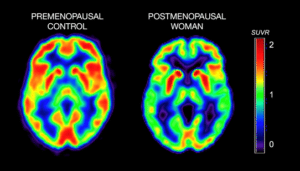This post is about how to hack coronavirus. No, I don’t know how to cure it, but we know some ways that it behaves, and we can use that information in our favor.
One of the things that it does is damage people’s hearts, not just lungs. It seems to do this through increasing inflammation beyond what would be normal, what we call a cytokine storm. A cytokine storm happens when your immune system starts pumping out so many cytokine proteins that they start attacking healthy cells and causing a lot of inflammation.
A new paper that came out a week ago in China, called Clinical Predictors of Mortality Due to COVID-19 Based on An Analysis of Data of 150 Patients From Wuhan, China,[ref url=”https://www.ncbi.nlm.nih.gov/pubmed/32125452″] and provided some really interesting information.
Researchers found that around 33% of people are coming out of it with respiratory failure and heart damage, which is useful information. They provide the name of the inflammatory cytokine that seems to rise, that’s causing the problem, which is interleukin-6, commonly known as IL-6. This is a major clue.
So, I came up with a list of things that I’m going to do to inhibit IL-6 before or even during an infection. Most of these have been tested in humans or in animals — not against coronavirus specifically, but in the context of IL-6. Since we don’t know what cures coronavirus, that’s all we have to work with right now.
In fact, in many cases, these lower or inhibit IL-6. So if you want to stop a cytokine storm, this is your list of big guns. You could take these before or even during an infection, if your doctor says it’s okay.
I’m sure there are people who will stand up and say, “There is no evidence that this or that works.” News flash: no one knows how to cure coronavirus, so what are we going to do? We’re going to be better than average. That said, here’s your list. Contains affiliate links.
I also recorded a special Bulletproof Radio episode where I talk about all these things: Coronavirus Bonus: How to Hack Your Inflammation Storm.
Epigallocatechin gallate (EGCG)
EGCG is a powerful polyphenol found in green tea that helps protect cells from damage.[ref url=”https://www.ncbi.nlm.nih.gov/pubmed/24494192″] Research shows it inhibits interleukin-6,[ref url=”https://www.sciencedirect.com/science/article/abs/pii/S0024320510000287″] which can help protect your lungs.
Andrographis
This is something that I actually take when I fly, especially during cold and flu season, whether or not I’m staring down the barrel of a coronavirus epidemic. Andrographis is an herb, and out of dozens and dozens of plants that have been tested, this is something that inhibits IL-6 very potently, in fact, more than some prescription drugs.
You can get it in combination with echinacea, and that combination was studied in one or two trials, and it actually reduced respiratory tract, viral and bacterial infections by, I believe, 20%. And it also reduced the severity of them.
Herbs: sage, oregano, bay leaf

You can also make them into herbal teas. It’s a common misconception that tea has to be dried plant material, but you can use kitchen herbs for tea if you have them on hand. Better yet, if you have an herb store nearby, you can buy dried herbs and make tea out of it. Sage tea is incredibly soothing if you have a cough or sore throat.
Sometimes you can find the herbal oils or essential oils, which are highly concentrated, so you’ll need to dilute them in a carrier oil like Brain Octane Oil. This isn’t the way I get my herbs, but there may be some efficacy there.
Feed your gut bacteria
Hippocrates said, “all disease begins in the gut.” So far, it’s looking like coronavirus starts by touching funk then touching your face, but his point holds true anyway. When you have a strong gut, your immune system more efficiently fights off disease. Here’s are three ways to feed the good guys.
- Grass-fed butter. One of the main reasons I formulated Bulletproof Coffee with grass-fed butter is because it contains butyrate, which decreases inflammation and feeds friendly microbes in your gut,[ref url=”https://www.ncbi.nlm.nih.gov/pubmed/11024006″] which helps your immune system.
- Resistant starch. Resistant starch is “food” for your friendly gut bacteria. If you treat them well, they’ll love you back by fighting off the bad guys and regulating IL-6. The blend I developed for Bulletproof is the one I take every day. It contains acacia gum, larch arabinogalactan, and it also contains hydrolyzed guar gum, because there were studies that showed that those things break down to feed the good guys in your gut.
- Probiotics. Probiotics are friendly microbe strains that researchers have identified to help your digest your food and boost your body’s natural defenses. Look for strains like:
-
- Bifidobacterium infants
- Saccharomyces boulardii (a beneficial yeast)
- Lactobacillus Casei
- Lactobacillus salivarius
Trehalose
Trehalose is a sugar that increases hydration in your tissues. Avoid it if you have C diff or if you just got out of the hospital, because it can make C diff worse.
Vitamin D3, zinc, and magnesium
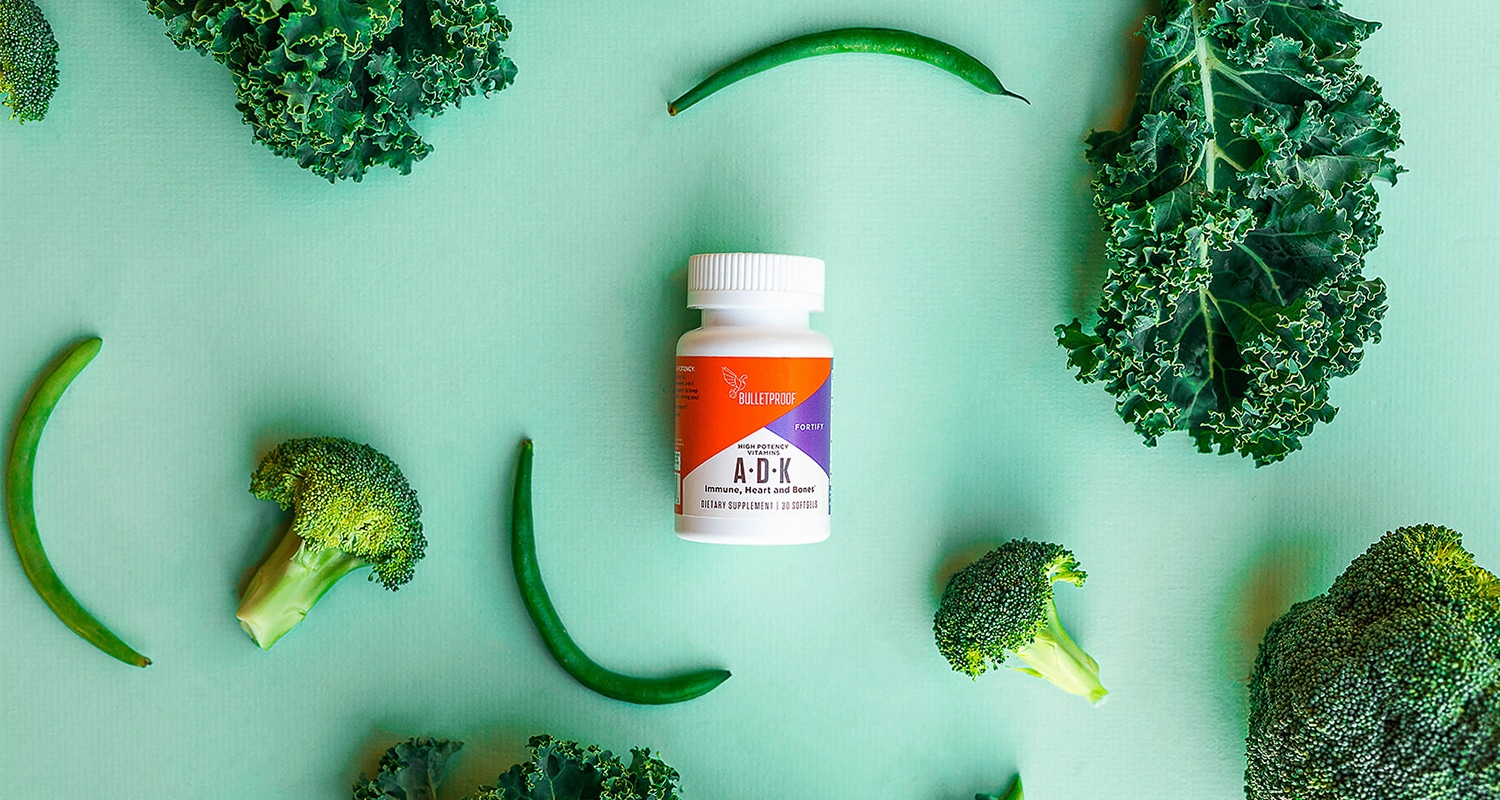
Get D3, zinc, and magnesium here.
CoQ10 and PQQ
Almost anything that increases mitochondrial function is going to help you with IL-6. One of my favorite mitochondrial boosters is one that I helped to put on the market, called PQQ, is in my Unfair Advantage formula that’s been around for around seven years now. PQQ is shown, in a study, to reduce IL-6. It also contains coenzyme Q10 (CoQ10) which strengthens and protects your heart.
Omega 3 fatty acids
Even the medical community is on board with the idea that omega 3 fatty acids reduce inflammation, and doctors almost universally recommend supplementing omega 3’s to their patients, especially to their heart patients. I developed a high-potency formula for Bulletproof that I take every day.
Curcumin
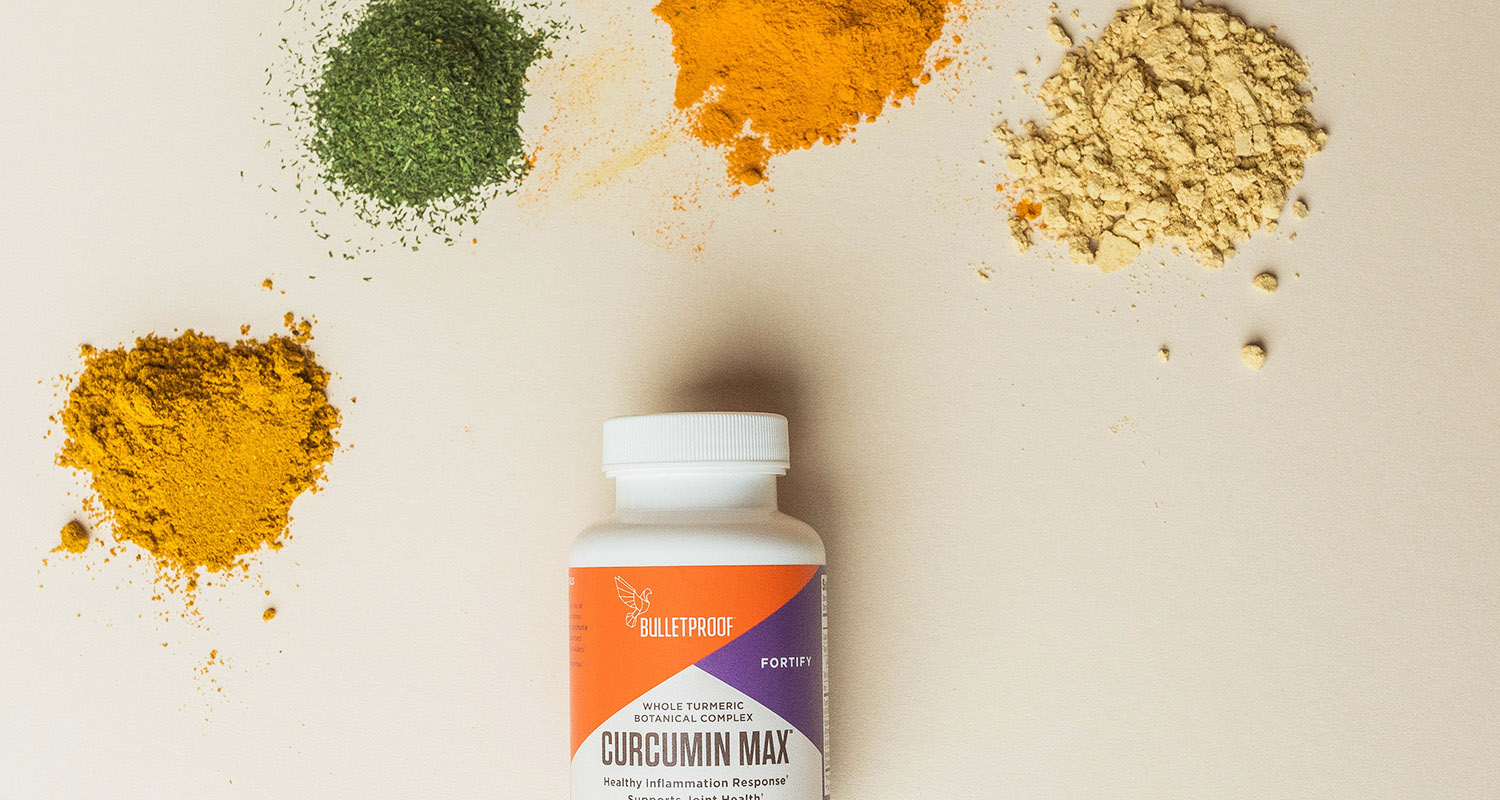
Black cumin seed oil
Black cumin seed oil is picking up steam in popularity for its effect. It has research behind it for its ability to reduce IL-6 and other inflammatory proteins. It’s also good for people who have excess histamine.
Fisetin
Fisetin is well known in the anti-aging mitochondrial enhancement circles, and cognitive enhancement circles. I included it in a formula I put together called Smart Mode. Fisetin is shown in a study to reduce inflammation on top of its cognitive superpowers.
Hydroxytyrosol

Luteolin
You’ll find this one in formulas to support eye health.
Quercetin
Quercetin reduces inflammation, reduces histamine, and modulates an immune system that has gone into overdrive.[ref url=”https://www.ncbi.nlm.nih.gov/pmc/articles/PMC4808895/”]
Sulphoraphane
Broccoli sprouts, or sulforaphane, is shown to inhibit IL-6, which is something I wrote about in Head Strong. You can also get sulforaphane in capsules.
Melanocyte-stimulating hormone (MSH)
Another thing that I do, that a lot of people don’t know about, even though I wrote about it in Super Human, is somebody called melanocyte-stimulating hormone, or MSH, or “Melanotan.” This is really interesting stuff, because it actually does reduce inflammation, especially autoimmune-type of inflammation. It also gives you a tan without very much sun.
I take it for its autoimmune purposes, and because, based on Head Strong research, I believe that having extra melanin inside your eyes and inside your brain can have cognitive and biochemical effects.
I should mention that this one is an injectible.
Testosterone
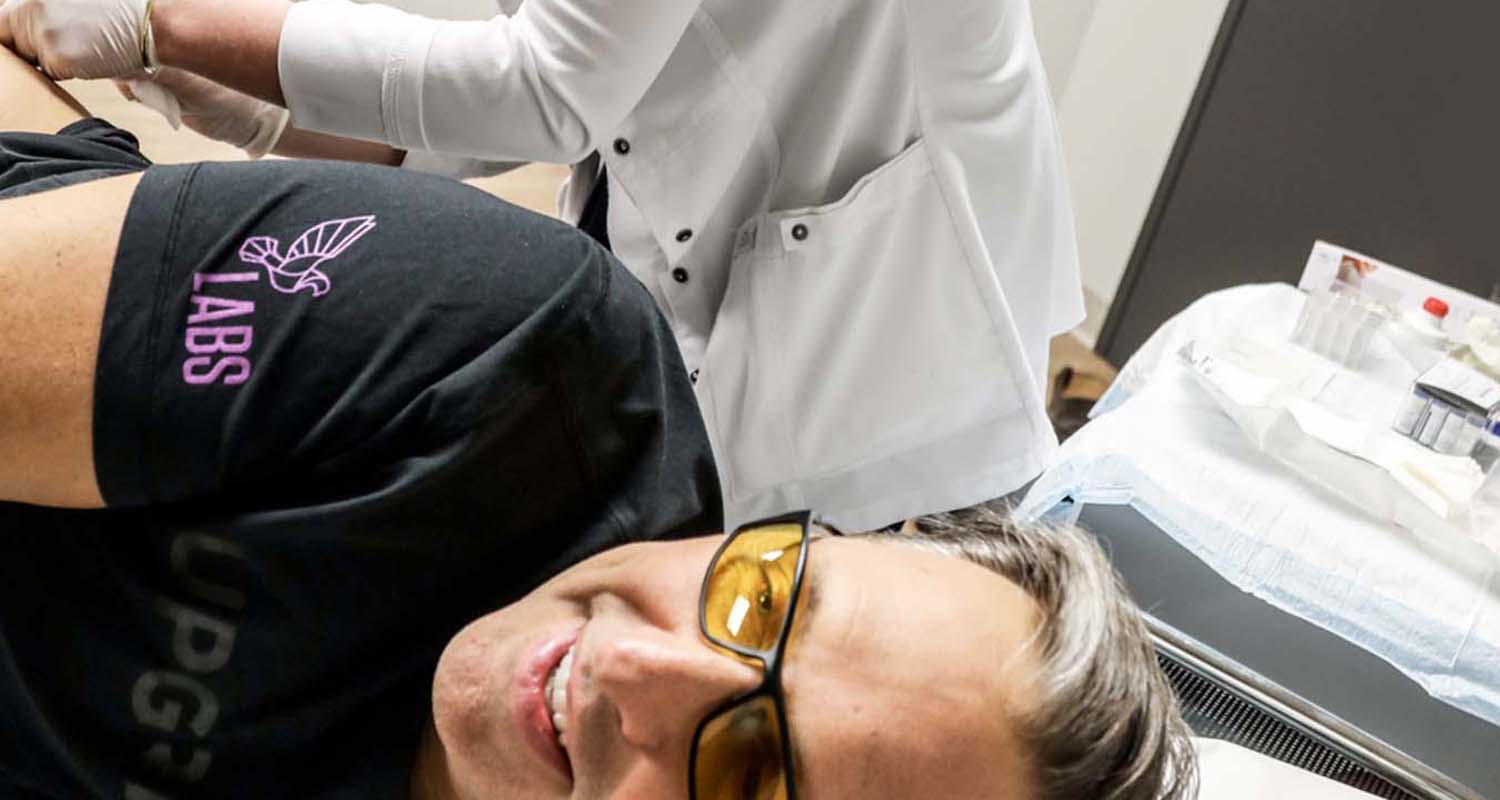
Glycine
There is a study is on mice about glycine, which is the primary amino acid in collage, being beneficial. I definitely think that’s worth doing. Glycine is one of the amino acids in collagen.
Enzymes
Bromelain and serrapeptase are digestive enzymes that help digest protein, and is also something that is probably worth your time. It may help you break up mucus.
Low-dose naltrexone
Another thing that could be beneficial, that is actually in Super Human, is called low-dose naltrexone (LDN), which is a general anti-inflammatory. LDN could have IL-6 specific inhibitory effects. This one is available by prescription.
Astaxanthin
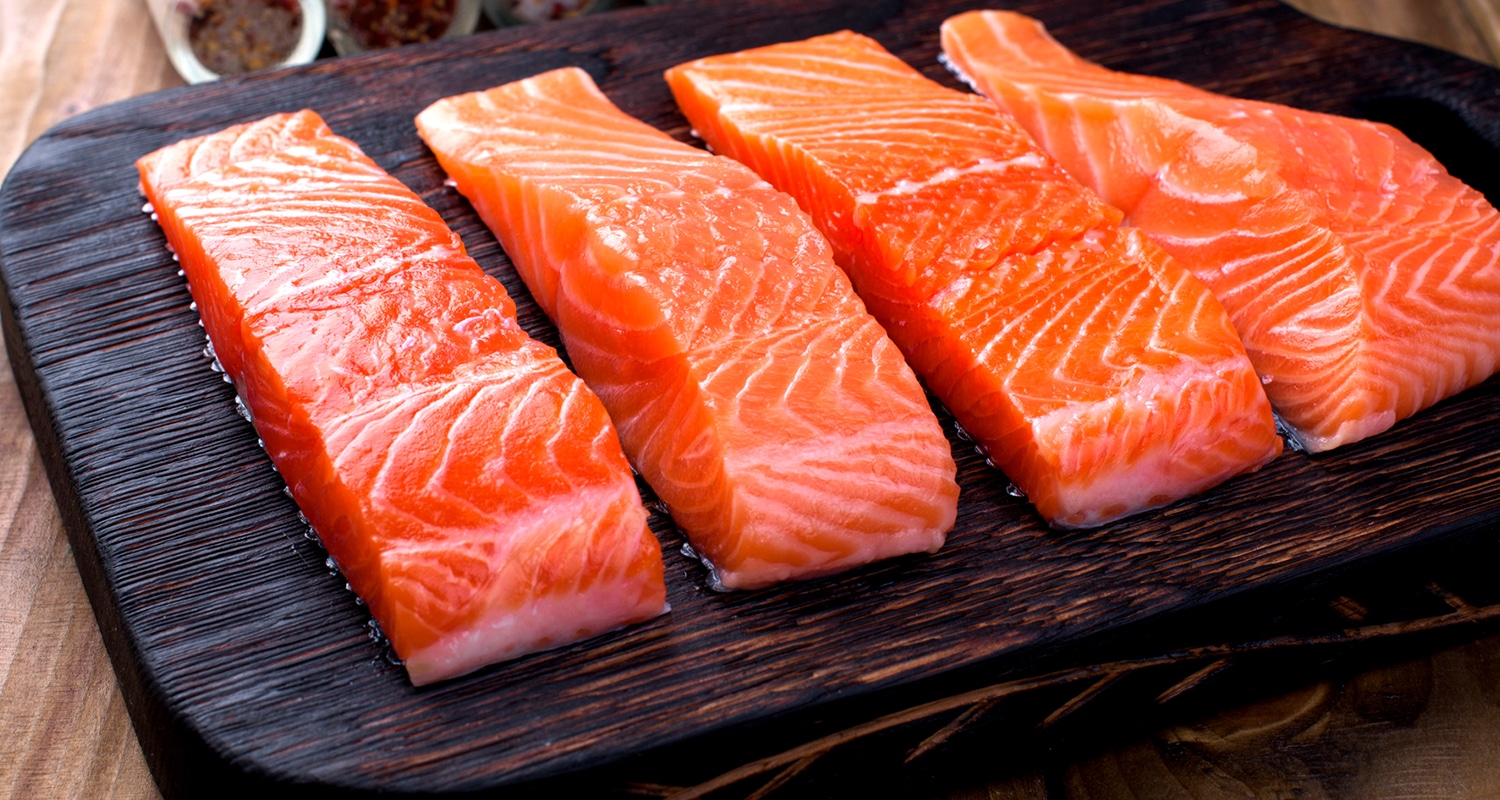
Rosemary
One of my favorite herbs of all time is rosemary. We grow so much of it in my garden here, and in rosemary, you’ll find something called rosmarinic acid, which actually regulates inflammatory cytokine production.
You can actually take rosemary extract capsules, or eat a lot of Rosemary, I actually do both. I think it’s really worth your time to do that, assuming you aren’t allergic to it.
L-glutamine
If I was very, very ill and working on fighting things, I would be on a serious L-glutamine regimen. L-glutamine can reduce IL-6 directly, at least in mice, and probably does it in humans. It makes you feel better really fast. There is nothing that will throw you out of ketosis faster than L-glutamine though, except for a Twinkie.
The Dont’s
What are the things you could do that might increase your levels of IL-6?
Don’t eat crap
I’ve been saying this in every one of my posts about coronavirus: if you’re eating fried stuff, and you have lots of sugar, it is going to increase inflammation and IL-6. Eating foods that are high in the glycemic index are not going to be good for you either.
Don’t accept bad sleep
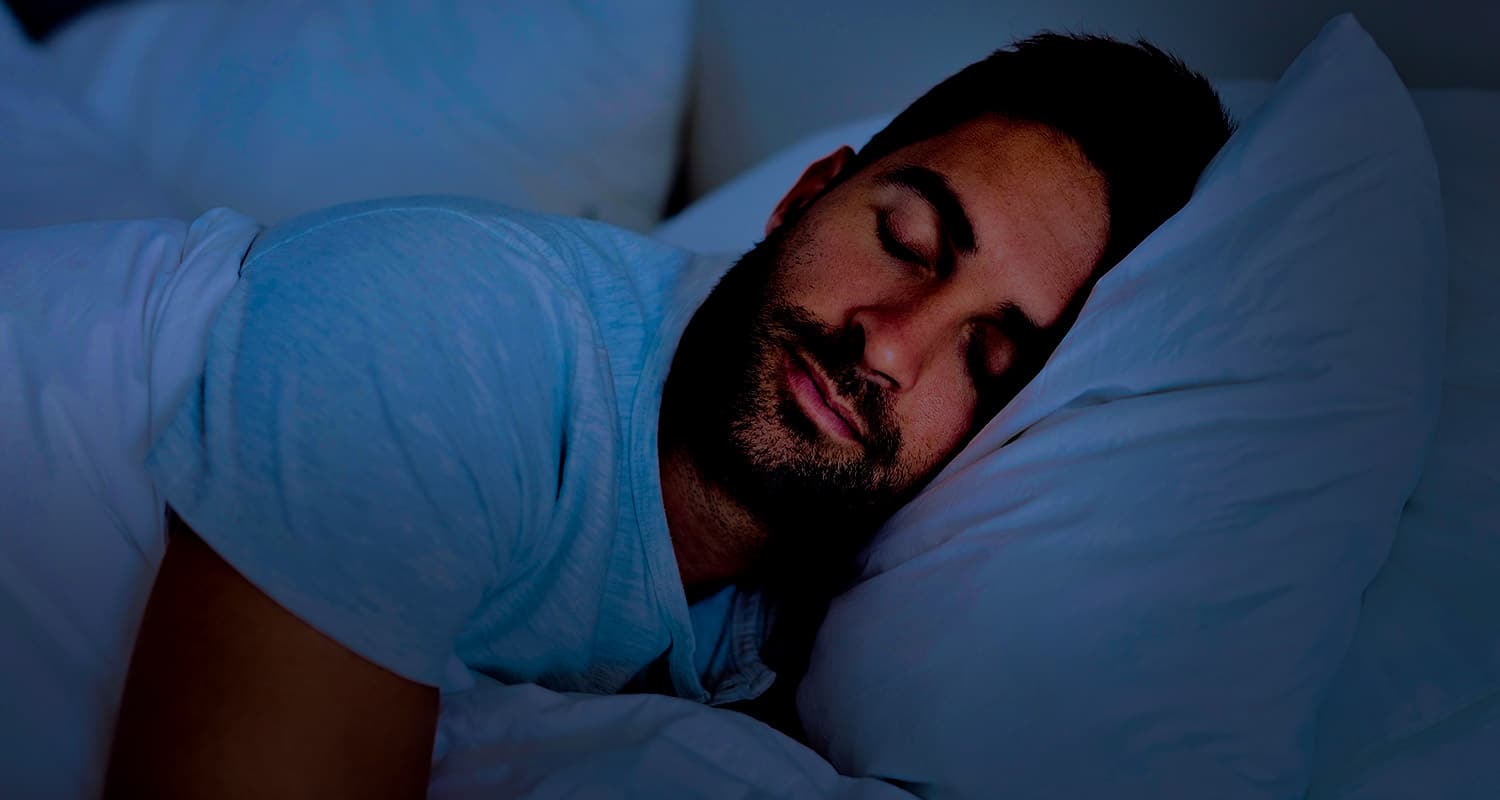
Don’t overtrain
We also know that over-training or long endurance training is not good for IL-6. It stresses your body, and too much stress is a bad thing.
Don’t fast
Short fasts are fine, like 12-18 hour intermittent fasts, especially if your body is fully acclimated to that eating pattern. You don’t need extra stress right now, though.
It’s good to be in ketosis, because of its anti-inflammatory effect. However, there are studies that show that having some carbohydrates, some glucose present, is good to fight off a virus infection.
If your condition develops into a bacterial pneumonia, fasting will be beneficial.
Don’t breathe mold

If you’re dealing with toxic mold, you’ve got to do something about that. The best thing you can do is get out. If you can’t afford to get out, get air filters and fix the water leaks. Look at my company called Homebiotic, which has been around for five years, that has a $34.99 probiotic you spray around your house.
Don’t smoke
If you smoke, consider this your wakeup call. Smokers have a much higher chance of dying from coronavirus, because it alters your lung’s built-in defense mechanisms.[ref url=”https://www.scientificamerican.com/article/smoking-or-vaping-may-increase-the-risk-of-a-severe-coronavirus-infection1/”] A high proportion of people are dying in China because there is such a high proportion of smokers there. You’ve got to stop.
It’s not just cigarettes that present a problem. Smoking pot knocks out the defenses in your lungs in the same way, so you’ve got to stop that too. That doesn’t mean you have to stop using cannabis products — you can replace smoking marijuana with edibles. Vaping probably isn’t a good idea. And if you’re drinking alcohol, just stop for a few months. It’s worth it.
Now, no one has clinically trialed any of the things I’m talking about in the context of coronavirus. What we do know is that these actually affect inflammation via changing IL-6.
So what would you want to do, if you might be exposed to something like this, or someone you care about would be? You could wait until a drug or some other thing was clinically trialed, double-blind studied, maybe six months from now before you decide.
Or you could do what I do as a biohacker and say, “Well, given what we know, what is the most logical way that I can be not average?” So if you can get a little bit better than average results, great. You might actually, though, get worse than average results. It’s just, you’ve got to play the odds, and in my opinion, my exclusive non-medical opinion, that you are paying nothing for, and therefore should not trust until you talk to your doctor, or anything else.
If you have suggestions for this, please put it into the comment thread. Please share them on Instagram. I really want to know more, but this is the kind of biohacking perspective that’s oftentimes missing.
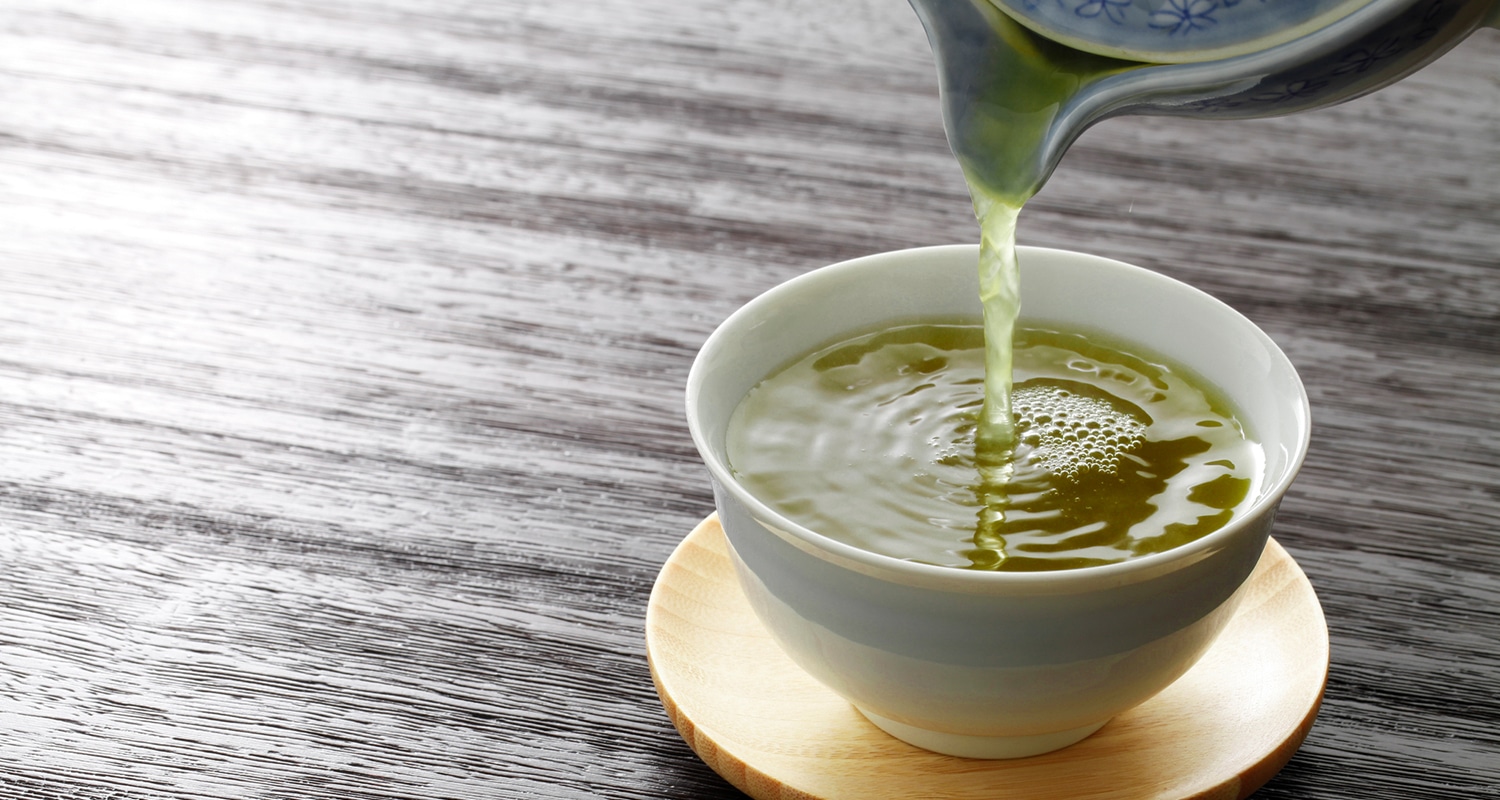
 Traumatic brain injury, or TBI, is a condition caused by a blow or jolt to the head. This can affect blood and oxygen supply to the brain, while producing inflammation. TBI, especially if followed by a loss of consciousness, has been associated with an increased risk of memory loss and dementia later in life.
Traumatic brain injury, or TBI, is a condition caused by a blow or jolt to the head. This can affect blood and oxygen supply to the brain, while producing inflammation. TBI, especially if followed by a loss of consciousness, has been associated with an increased risk of memory loss and dementia later in life. Inflammation can occur in a variety of forms. Whether a harmful bacteria or virus enters your body, you scrape your knee, or you have a tooth abscess, each of these events signals the body’s defenses to kick into high gear. A similar first- line defense exists inside the brain, where cells called microglia are on constant patrol. They trigger inflammation to defend brain tissue against things that shouldn’t be there, including viruses, bacteria, cancer cells, and Alzheimer’s plaques. Once their mission is complete, the immune system calls them off, and all calms down and returns to normal.
Inflammation can occur in a variety of forms. Whether a harmful bacteria or virus enters your body, you scrape your knee, or you have a tooth abscess, each of these events signals the body’s defenses to kick into high gear. A similar first- line defense exists inside the brain, where cells called microglia are on constant patrol. They trigger inflammation to defend brain tissue against things that shouldn’t be there, including viruses, bacteria, cancer cells, and Alzheimer’s plaques. Once their mission is complete, the immune system calls them off, and all calms down and returns to normal. Last but not least, depression is a serious medical issue—one that impacts women very directly. In most cultures, it is quite common to blame a woman’s poor mood on her hormones. Even when women are having a bad day or responding to extreme or aggressive external stressors, they are often chided or made fun of, with people blaming their mental state on PMS or some other form of hormonal swing. This is a conversation that’s due for an update.
Last but not least, depression is a serious medical issue—one that impacts women very directly. In most cultures, it is quite common to blame a woman’s poor mood on her hormones. Even when women are having a bad day or responding to extreme or aggressive external stressors, they are often chided or made fun of, with people blaming their mental state on PMS or some other form of hormonal swing. This is a conversation that’s due for an update.

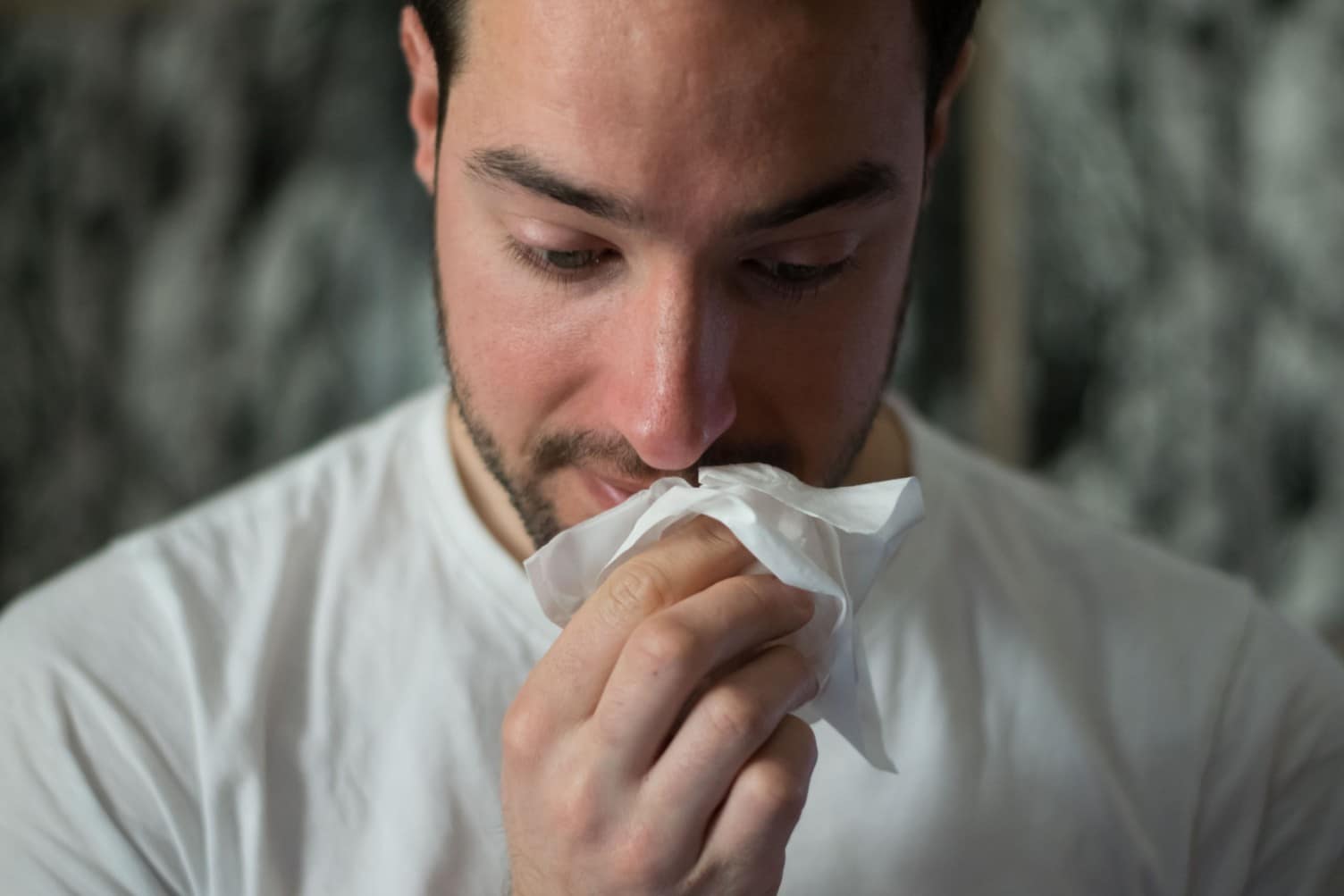 Xylitol is a sugar alcohol that comes from birch trees. Aside from tasting sweet, it also keeps bacteria from adhering to surfaces — that’s why people started putting it into saline-based xylitol nasal sprays. With the moisture from the saltwater, you’re less likely to get cracks, and if you do, the xylitol will prevent bacteria from hanging around your nasal cavity to cause an infection.
Xylitol is a sugar alcohol that comes from birch trees. Aside from tasting sweet, it also keeps bacteria from adhering to surfaces — that’s why people started putting it into saline-based xylitol nasal sprays. With the moisture from the saltwater, you’re less likely to get cracks, and if you do, the xylitol will prevent bacteria from hanging around your nasal cavity to cause an infection.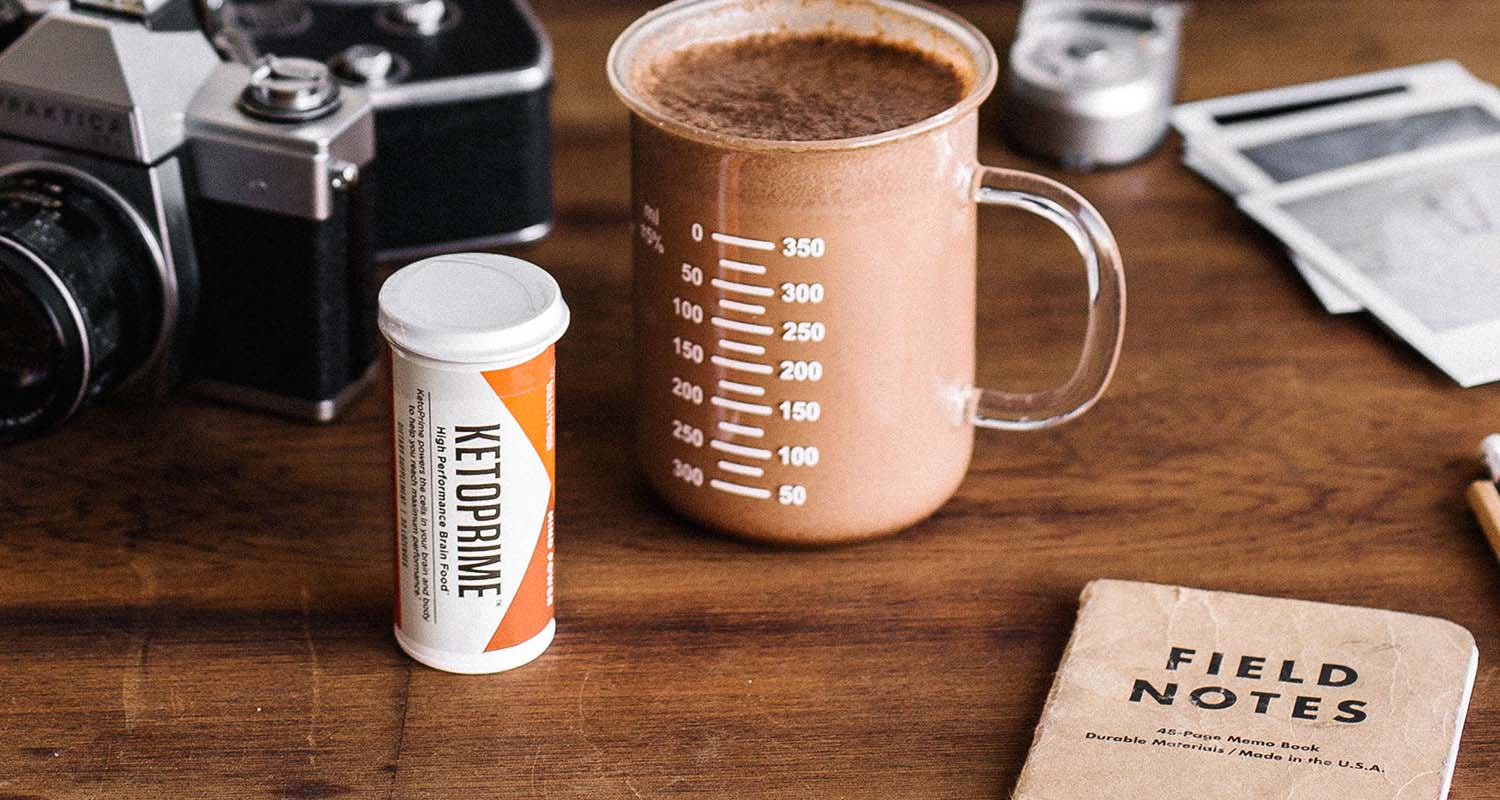 Air travel causes a lot of inflammation and weakens your mitochondria, the power plants of your cells. I take key supplements to counteract some of the cellular effects of air travel.
Air travel causes a lot of inflammation and weakens your mitochondria, the power plants of your cells. I take key supplements to counteract some of the cellular effects of air travel. Drink as much water as you comfortably can when you’re flying. Avoid airplane water. It comes from a tank that is rarely washed, and has a lot of pathogens in it that can increase your toxin load, which makes you sick and weak. https://www.eurekalert.org/pub_releases/2019-08/tcuo-2aw082919.php Fill your own water bottle at the airtport, or order bottled or sparkling water.
Drink as much water as you comfortably can when you’re flying. Avoid airplane water. It comes from a tank that is rarely washed, and has a lot of pathogens in it that can increase your toxin load, which makes you sick and weak. https://www.eurekalert.org/pub_releases/2019-08/tcuo-2aw082919.php Fill your own water bottle at the airtport, or order bottled or sparkling water. Fluorescent lighting in airplanes (or anywhere) make you tired and weak. Fluorescent bulbs take away all the biologically helpful wavelengths of light, and replace them with blue wavelengths — the light equivalent of junk food.
Fluorescent lighting in airplanes (or anywhere) make you tired and weak. Fluorescent bulbs take away all the biologically helpful wavelengths of light, and replace them with blue wavelengths — the light equivalent of junk food.
